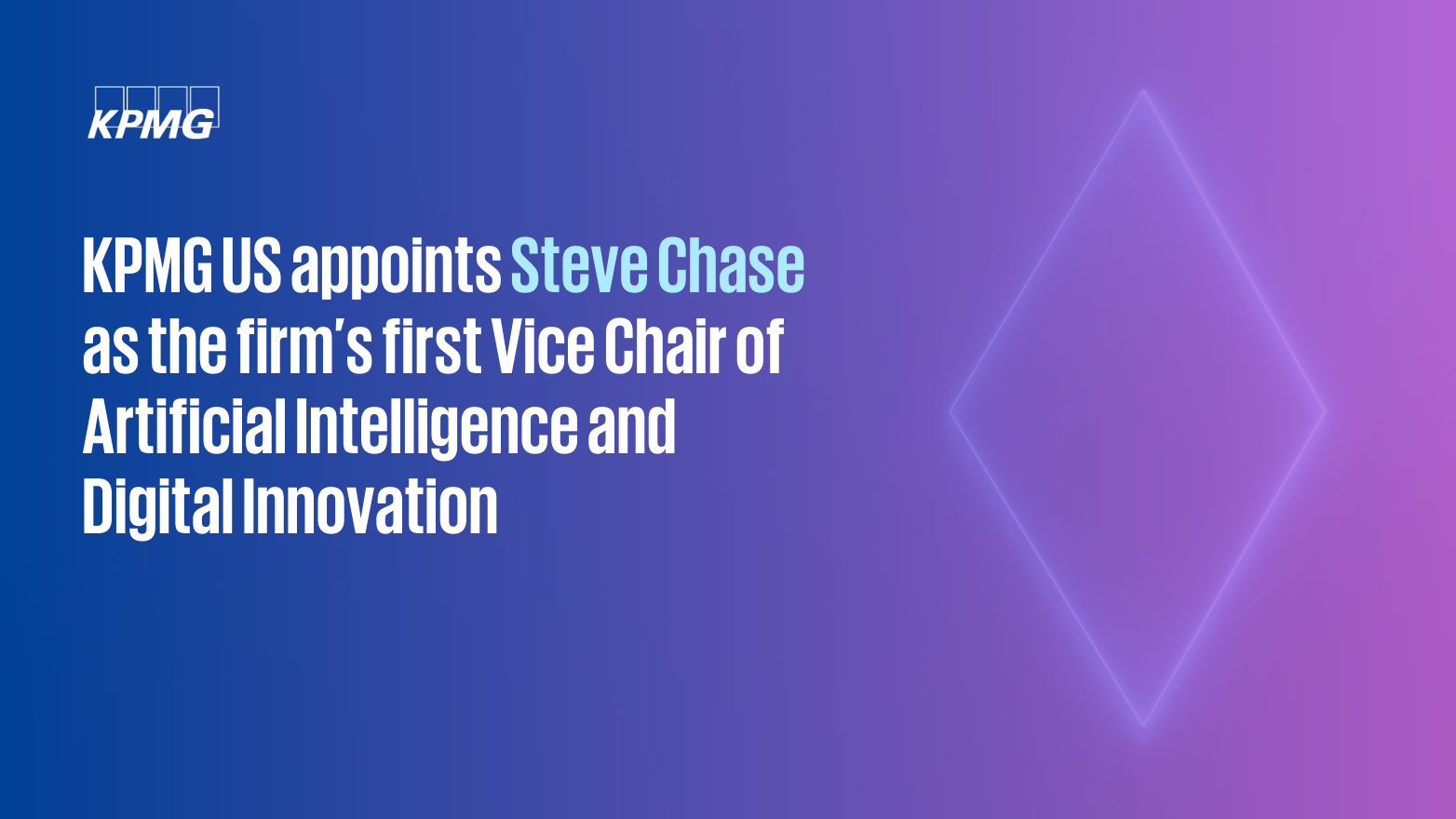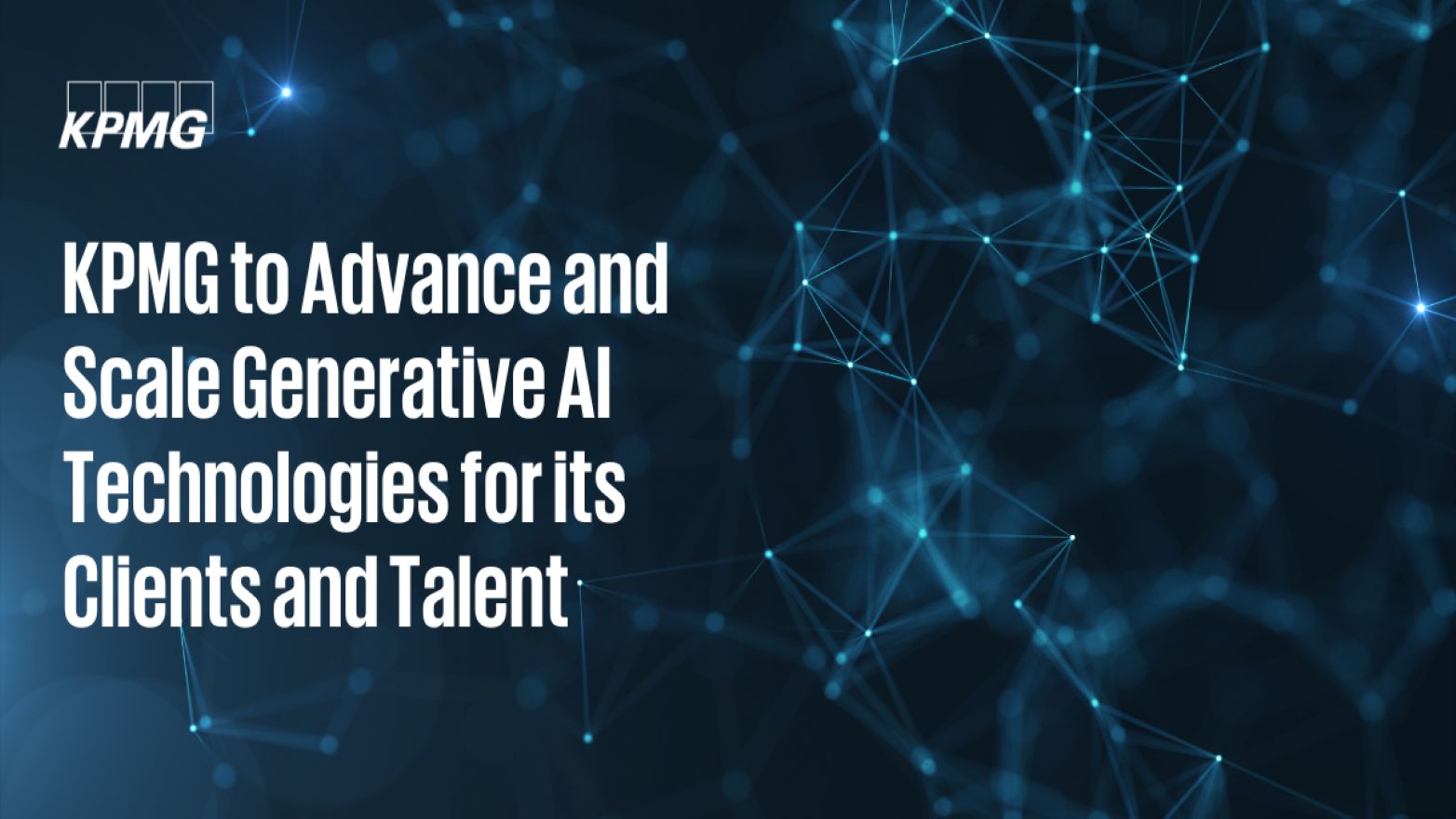- 97% of leaders are investing in GenAI over the next 12 months, with 43% of leaders saying their organizations plan to invest $100 million or more.
- 51% of leaders are currently measuring GenAI-related ROI through productivity gains, followed by employee satisfaction (48%) and revenue generated (47%).
- Many organizations have already or are planning to provide mandatory GenAI skills training for both employees (75%) and leaders (77%) in the next 12 months.
- 54% of leaders expect new business models to support their growth strategies in the next 12 months, followed by new product and revenue streams (46%), productivity (39%) and profitability (31%).
KPMG GenAI Study: the path to sustainable returns

The GenAI landscape is rapidly evolving, but most organizations have yet to realize sustainable growth beyond productivity gains. KPMG LLP’s inaugural AI & Digital Innovation quarterly pulse survey reveals C-suite and business leaders across the United States are eager to accelerate their GenAI strategies, but recognize they must first make meaningful investments in data security, governance frameworks and workforce preparedness to enable long-term business value.
“We’re entering the next phase of GenAI, moving from pilots to transformational programs,” said Steve Chase, KPMG’s Vice Chair of AI & Digital Innovation. “Early experimentation has proven the potential of GenAI, sparking a readiness for greater investments that will deliver enterprise-wide productivity gains, reshape business models and create new revenue streams. Our experience at KPMG and with our clients has underscored that the readiness of your workforce will ultimately dictate success with GenAI, and this will be truer than ever as we enter this next phase.”
Investment priorities
97% of leaders plan to invest in GenAI in the next 12 months, with nearly a quarter investing between $100-249 million, and another 15% investing between $250-$499 million. 6% plan to invest above the $500 million mark.
Investment strategies are being shaped by various considerations, but the majority of respondents cited readiness of risk management processes and governance (77%) and data security (76%) as the most influential factors. Top investment priorities right now include improving customer experience (45%), workforce training and capability building (35%), purchasing GenAI technology and solutions (30%) and building responsible GenAI and governance programs (30%).
CEOs are at the center of AI-readiness imperatives
Whether the CEO or a Chief AI Officer is spearheading efforts, a designated leader within the C-suite is uniquely positioned to drive transformation across the enterprise, from enabling cross-disciplinary integration at the board and functional levels where new processes and quality control initiatives are implemented, to preparing the workforce with training and education. 45% of leaders have already or are planning to hire new leadership to oversee AI investment and strategy in the next year. According to 34% of those surveyed, CEOs are currently driving GenAI strategies.
Measuring ROI during the AI-implementation phase
Today, half of leaders are gauging their return on GenAI investments through enhanced productivity (51%), followed by employee satisfaction and revenue generated, 48% and 47% respectively. Another upside to increased productivity is the potential for GenAI to ultimately help reduce employee stress and burnout – 90% of leaders expect this outcome in the future.
As performance indicators for GenAI continue to evolve, leaders can expect early productivity boosts to give way to more transformative AI investments.
KPMG’s inaugural quarterly pulse survey captured perspectives from 220 U.S.-based C-suite and business leaders representing organizations with an annual revenue of $1 billion or more. Read more here and check out the additional survey findings below:
- 54% of leaders expect new business models to support their growth strategies in the next 12 months, followed by new product and revenue streams (46%), productivity (39%) and profitability (31%).
- 50% of leaders anticipate the greatest value creation from GenAI investments will come from enhancing existing products and services by analyzing customer data, enhancing efficiency to generate greater productivity (48%), improving product quality, efficiency and innovation (42%) and improving supply chain efficiency and reducing cost (37%).
- 90% of leaders feel productivity gains generated by GenAI are somewhat likely to extremely likely to reduce employee stress and burnout.
- Organizations plan to provide mandatory GenAI skills training for both employees and leaders (58%), another 17% of leaders and 19% of employees have done so already.
- 34% of leaders say the CEO is leading AI-related initiatives at their organization, followed by the Chief Information Officer (31%) and Chief Innovation Officer (21%).
- 95% of leaders said education and training, followed by regular audits and monitoring and human oversight (both 91%) would be the most effective in ensuring ethical use of GenAI at their companies, and ethical frameworks (87%).
About KPMG LLP
KPMG LLP is the U.S. firm of the KPMG global organization of independent professional services firms providing audit, tax and advisory services. The KPMG global organization operates in 143 countries and territories and has more than 273,000 people working in member firms around the world. Each KPMG firm is a legally distinct and separate entity and describes itself as such.
KPMG is widely recognized for being a great place to work and build a career. Our people share a sense of purpose in the work we do, and a strong commitment to community service, inclusion and diversity and eradicating childhood illiteracy. Learn more at www.kpmg.com/us.
Explore more

KPMG Trusted AI and the Regulatory Landscape
A resource page that shares that latest perspectives from KPMG U.S. leaders on the evolving AI regulatory environment.

KPMG Establishes New AI and Digital Innovation Group
KPMG LLP announced the establishment of an AI and Digital Innovation group led by a newly named Vice Chair, Steve Chase. Read more.

KPMG to Advance and Scale Generative AI Technologies for its Clients and Talent
KPMG announces a new initiative to deploy a series of generative artificial intelligence (AI) investments and alliances to empower its workforce, further advance cutting-edge client solutions and reimagine how the 125-year-old firm operates.
